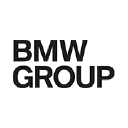MBG.DE

Mercedes-Benz Group AG
MBG.DE
(3.8)52,95 EUR
5.2% ROA
13.82% ROE
4.53x PER
58.750.653.600,00 EUR
121.02% DER
9.39% Yield
8.49% NPM
Mercedes-Benz Group AG Stock Analysis
Mercedes-Benz Group AG Fundamental Analysis
Fundamental analysis in stock investing is like studying the foundation of a house before buying it. It involves looking at a company's financial health, like its earnings, assets, and debts, to determine if it's a good investment based on its fundamental strength and potential for growth.
| # | Analysis | Rating |
|---|---|---|
| 1 |
ROE
The stock's ROE exceeds expectations (17.1%), revealing strong profitability and efficient use of shareholders' equity, making it an attractive investment opportunity. |
|
| 2 |
PBV
The stock's low PBV ratio (0.68x) suggests it's undervalued, making it an attractive opportunity for investors. |
|
| 3 |
Net Profit Growth
This company has consistently achieved strong net profit growth over the past five years, demonstrating a solid financial performance and making it an appealing investment option. |
|
| 4 |
Dividend
The company's consistent dividend distribution over the past five years reflects its dedication to providing shareholders with steady returns, making it an appealing choice for investors seeking income stability. |
|
| 5 |
ROA
The stock's ROA (6.13%) shows that it's doing a pretty good job at making money from its assets, making it a solid choice to invest and earn steady profits. |
|
| 6 |
DER
The stock maintains a fair debt to equity ratio (94%), indicating a reasonable balance between the money it owes and the ownership it possesses. |
|
| 7 |
Revenue Growth
Over the past three years, this company's revenue has consistently grown, demonstrating a positive financial trend that makes it an appealing choice. |
|
| 8 |
Assets Growth
With a track record of continuous revenue growth in the last three years, this company offers a promising investment opportunity |
|
| 9 |
Graham Number
The company's Graham number indicates that it is undervalued compared to its stock price, suggesting a potentially favorable investment opportunity. |
|
| 10 |
Dividend Growth
The company's dividend growth has exhibited a remarkable upward trend over the past three years, consistently delivering higher payouts to shareholders. |
|
| 11 |
Buffet Intrinsic Value
Based on Warren Buffett's formula, the company's stock appears undervalued (1.019), presenting an attractive investment chance with its intrinsic value surpassing the current market price. |
Mercedes-Benz Group AG Technical Analysis
Technical analysis in stock investing is like reading the patterns on a weather map to predict future weather conditions. It involves studying past stock price movements and trading volumes to make predictions about where a stock's price might go next, without necessarily looking at the company's financial health.
| # | Analysis | Recommendation |
|---|---|---|
| 1 | Awesome Oscillator | Hold |
| 2 | MACD | Buy |
| 3 | RSI | Hold |
| 4 | Stoch RSI | Sell |
Mercedes-Benz Group AG Price Chart
Financial Statements
Financial statements are like report cards for companies. They show how much money a company makes (income statement), what it owns and owes (balance sheet), and where it spends its money (cash flow statement), helping stock investors understand if a company is healthy and worth investing in.
Income Statements
An income statement for a company is like a scoreboard for its profits and losses. It shows how much money the company made (revenue) and how much it spent to make that money (expenses), helping stock investors see if a company is making a profit or not.
Revenue in stock investing is the total amount of money a company earns from its sales, and it's a key factor that investors consider to assess a company's financial performance and growth potential.
| Year | Revenue | Growth |
|---|---|---|
| 1998 | 131.834.025.900 | |
| 1999 | 150.097.072.650 | 12.17% |
| 2000 | 162.315.354.040 | 7.53% |
| 2001 | 153.139.480.960 | -5.99% |
| 2002 | 149.718.257.790 | -2.29% |
| 2003 | 136.199.171.870 | -9.93% |
| 2004 | 141.953.975.440 | 4.05% |
| 2005 | 149.662.390.600 | 5.15% |
| 2006 | 151.588.765.230 | 1.27% |
| 2007 | 99.555.402.240 | -52.27% |
| 2008 | 96.100.243.540 | -3.6% |
| 2009 | 78.924.000.000 | -21.76% |
| 2010 | 97.761.000.000 | 19.27% |
| 2011 | 106.540.000.000 | 8.24% |
| 2012 | 114.297.000.000 | 6.79% |
| 2013 | 117.982.000.000 | 3.12% |
| 2014 | 129.872.000.000 | 9.16% |
| 2015 | 149.467.000.000 | 13.11% |
| 2016 | 153.261.000.000 | 2.48% |
| 2017 | 164.154.000.000 | 6.64% |
| 2018 | 167.362.000.000 | 1.92% |
| 2019 | 172.745.000.000 | 3.12% |
| 2020 | 121.778.000.000 | -41.85% |
| 2021 | 133.893.000.000 | 9.05% |
| 2022 | 150.017.000.000 | 10.75% |
| 2023 | 148.800.000.000 | -0.82% |
| 2023 | 153.218.000.000 | 2.88% |
| 2024 | 146.972.000.000 | -4.25% |
Research and Development Expenses are the costs a company incurs to create and improve its products or services, which can be important for investors to evaluate a company's innovation and potential for future growth.
| Year | Research and Development Expenses | Growth |
|---|---|---|
| 1998 | 4.973.565.780 | |
| 1999 | 5.741.124.830 | 13.37% |
| 2000 | 6.334.138.260 | 9.36% |
| 2001 | 5.943.236.080 | -6.58% |
| 2002 | 6.076.136.720 | 2.19% |
| 2003 | 5.561.386.120 | -9.26% |
| 2004 | 5.653.579.520 | 1.63% |
| 2005 | 5.645.056.660 | -0.15% |
| 2006 | 5.331.106.840 | -5.89% |
| 2007 | 3.163.232.440 | -68.53% |
| 2008 | 3.062.283.420 | -3.3% |
| 2009 | 2.896.000.000 | -5.74% |
| 2010 | 3.476.000.000 | 16.69% |
| 2011 | 4.174.000.000 | 16.72% |
| 2012 | 5.156.000.000 | 19.05% |
| 2013 | 5.337.000.000 | 3.39% |
| 2014 | 5.723.000.000 | 6.74% |
| 2015 | 4.725.000.000 | -21.12% |
| 2016 | 5.221.000.000 | 9.5% |
| 2017 | 7.248.000.000 | 27.97% |
| 2018 | 8.119.000.000 | 10.73% |
| 2019 | 8.379.000.000 | 3.1% |
| 2020 | 6.535.000.000 | -28.22% |
| 2021 | 7.412.000.000 | 11.83% |
| 2022 | 7.654.000.000 | 3.16% |
| 2023 | 6.164.000.000 | -24.17% |
| 2023 | 6.214.000.000 | 0.8% |
| 2024 | 5.844.000.000 | -6.33% |
General and Administrative Expenses are the costs a company incurs to run its day-to-day operations, such as office rent, salaries, and utilities, which investors consider to understand a company's overall efficiency and management effectiveness.
| Year | General and Administrative Expenses | Growth |
|---|---|---|
| 1998 | 16.235.499.060 | |
| 1999 | 17.545.362.450 | 7.47% |
| 2000 | 17.857.819.280 | 1.75% |
| 2001 | 18.362.441.580 | 2.75% |
| 2002 | 18.309.412.610 | -0.29% |
| 2003 | 17.741.012.290 | -3.2% |
| 2004 | 17.958.819.600 | 1.21% |
| 2005 | 18.969.957.080 | 5.33% |
| 2006 | 18.512.639.770 | -2.47% |
| 2007 | 12.999.294.110 | -42.41% |
| 2008 | 13.359.687.320 | 2.7% |
| 2009 | 3.287.000.000 | -306.44% |
| 2010 | 4.061.000.000 | 19.06% |
| 2011 | 3.855.000.000 | -5.34% |
| 2012 | 3.320.000.000 | -16.11% |
| 2013 | 2.610.000.000 | -27.2% |
| 2014 | 2.650.000.000 | 1.51% |
| 2015 | 2.639.000.000 | -0.42% |
| 2016 | 2.694.000.000 | 2.04% |
| 2017 | 2.815.000.000 | 4.3% |
| 2018 | 3.075.000.000 | 8.46% |
| 2019 | 3.139.000.000 | 2.04% |
| 2020 | 1.531.000.000 | -105.03% |
| 2021 | 1.803.000.000 | 15.09% |
| 2022 | 1.831.000.000 | 1.53% |
| 2023 | 2.424.000.000 | 24.46% |
| 2023 | 2.688.000.000 | 9.82% |
| 2024 | 2.476.000.000 | -8.56% |
EBITDA stands for Earnings Before Interest, Taxes, Depreciation, and Amortization. It is a measure that helps stock investors analyze a company's profitability by looking at its earnings without considering certain expenses. This helps to get a clearer picture of the company's financial performance and its ability to generate cash flow.
| Year | EBITDA | Growth |
|---|---|---|
| 1998 | 14.196.789.000 | |
| 1999 | 17.860.393.880 | 20.51% |
| 2000 | 16.984.732.480 | -5.16% |
| 2001 | 14.516.421.560 | -17% |
| 2002 | 17.401.232.200 | 16.58% |
| 2003 | 14.559.334.080 | -19.52% |
| 2004 | 15.113.587.840 | 3.67% |
| 2005 | 14.890.251.160 | -1.5% |
| 2006 | 15.746.313.580 | 5.44% |
| 2007 | 15.888.178.550 | 0.89% |
| 2008 | 10.786.593.440 | -47.3% |
| 2009 | 3.092.000.000 | -248.85% |
| 2010 | 11.463.000.000 | 73.03% |
| 2011 | 12.256.000.000 | 6.47% |
| 2012 | 10.853.000.000 | -12.93% |
| 2013 | 10.854.000.000 | 0.01% |
| 2014 | 13.059.000.000 | 16.88% |
| 2015 | 16.757.000.000 | 22.07% |
| 2016 | 16.803.000.000 | 0.27% |
| 2017 | 16.798.000.000 | -0.03% |
| 2018 | 14.171.000.000 | -18.54% |
| 2019 | 7.798.000.000 | -81.73% |
| 2020 | 11.915.000.000 | 34.55% |
| 2021 | 19.091.000.000 | 37.59% |
| 2022 | 21.297.000.000 | 10.36% |
| 2023 | 26.704.000.000 | 20.25% |
| 2023 | 29.547.000.000 | 9.62% |
| 2024 | 19.788.000.000 | -49.32% |
Gross profit is the money a company makes from selling its products or services after subtracting the cost of producing or providing them, and it is an important measure for investors to understand a company's profitability.
| Year | Gross Profit | Growth |
|---|---|---|
| 1998 | 35.405.853.840 | |
| 1999 | 41.146.881.160 | 13.95% |
| 2000 | 41.176.690.020 | 0.07% |
| 2001 | 24.521.468.380 | -67.92% |
| 2002 | 28.151.686.770 | 12.9% |
| 2003 | 26.465.019.900 | -6.37% |
| 2004 | 27.471.940.880 | 3.67% |
| 2005 | 26.861.722.650 | -2.27% |
| 2006 | 25.916.028.760 | -3.65% |
| 2007 | 24.032.884.800 | -7.84% |
| 2008 | 21.609.822.220 | -11.21% |
| 2009 | 13.357.000.000 | -61.79% |
| 2010 | 22.773.000.000 | 41.35% |
| 2011 | 25.517.000.000 | 10.75% |
| 2012 | 24.529.000.000 | -4.03% |
| 2013 | 24.241.000.000 | -1.19% |
| 2014 | 27.264.000.000 | 11.09% |
| 2015 | 30.295.000.000 | 10% |
| 2016 | 30.862.000.000 | 1.84% |
| 2017 | 32.949.000.000 | 6.33% |
| 2018 | 30.884.000.000 | -6.69% |
| 2019 | 25.834.000.000 | -19.55% |
| 2020 | 18.656.000.000 | -38.48% |
| 2021 | 29.368.000.000 | 36.48% |
| 2022 | 32.584.000.000 | 9.87% |
| 2023 | 32.136.000.000 | -1.39% |
| 2023 | 34.629.000.000 | 7.2% |
| 2024 | 31.296.000.000 | -10.65% |
Net income in stock investing is like the money a company actually gets to keep as profit after paying all its bills, and it's an important measure to understand how well a company is doing financially.
| Year | Net Profit | Growth |
|---|---|---|
| 1998 | 4.822.644.960 | |
| 1999 | 5.749.075.150 | 16.11% |
| 2000 | 7.890.788.140 | 27.14% |
| 2001 | -663.106.900 | 1289.97% |
| 2002 | 4.721.966.350 | 114.04% |
| 2003 | 446.244.860 | -958.16% |
| 2004 | 2.463.851.200 | 81.89% |
| 2005 | 2.843.636.080 | 13.36% |
| 2006 | 3.227.001.710 | 11.88% |
| 2007 | 3.985.590.570 | 19.03% |
| 2008 | 1.417.284.820 | -181.21% |
| 2009 | -2.640.000.000 | 153.69% |
| 2010 | 4.498.000.000 | 158.69% |
| 2011 | 5.667.000.000 | 20.63% |
| 2012 | 6.095.000.000 | 7.02% |
| 2013 | 6.842.000.000 | 10.92% |
| 2014 | 6.962.000.000 | 1.72% |
| 2015 | 8.424.000.000 | 17.36% |
| 2016 | 8.526.000.000 | 1.2% |
| 2017 | 10.525.000.000 | 18.99% |
| 2018 | 7.249.000.000 | -45.19% |
| 2019 | 2.377.000.000 | -204.96% |
| 2020 | 3.627.000.000 | 34.46% |
| 2021 | 10.660.000.000 | 65.98% |
| 2022 | 14.501.000.000 | 26.49% |
| 2023 | 14.544.000.000 | 0.3% |
| 2023 | 14.261.000.000 | -1.98% |
| 2024 | 12.064.000.000 | -18.21% |
EPS, or earnings per share, is a measure that shows how much profit a company has earned for each outstanding share of its stock, and it is important for stock investors as it helps understand the profitability of a company and compare it with other companies in the market.
| Year | Earning per Share (EPS) | Growth |
|---|---|---|
| 1998 | 5 | |
| 1999 | 6 | 0% |
| 2000 | 8 | 28.57% |
| 2001 | -1 | 0% |
| 2002 | 5 | 100% |
| 2003 | 0 | 0% |
| 2004 | 2 | 100% |
| 2005 | 4 | 50% |
| 2006 | 4 | -33.33% |
| 2007 | 4 | 0% |
| 2008 | 1 | -200% |
| 2009 | -3 | 150% |
| 2010 | 4 | 150% |
| 2011 | 5 | 20% |
| 2012 | 6 | 16.67% |
| 2013 | 6 | 0% |
| 2014 | 7 | 0% |
| 2015 | 8 | 14.29% |
| 2016 | 8 | 0% |
| 2017 | 10 | 22.22% |
| 2018 | 7 | -50% |
| 2019 | 2 | -200% |
| 2020 | 3 | 33.33% |
| 2021 | 10 | 66.67% |
| 2022 | 14 | 30.77% |
| 2023 | 14 | 0% |
| 2023 | 13 | 0% |
| 2024 | 12 | -18.18% |
Cashflow Statements
Cashflow statements show the movement of money in and out of a company, helping stock investors understand how much money a company makes and spends. By examining cashflow statements, investors can assess if a company is generating enough cash to pay its bills, invest in growth, and provide returns to stockholders.
Free cash flow is the leftover cash that a company generates after covering its operating expenses and capital expenditures, which is important for stock investors as it shows how much money a company has available to invest in growth, pay dividends, or reduce debt.
| Year | Free Cashflow | Growth |
|---|---|---|
| 1998 | -932.810.040 | |
| 1999 | -12.726.474.740 | 92.67% |
| 2000 | -13.966.194.580 | 8.88% |
| 2001 | -11.578.520.820 | -20.62% |
| 2002 | -7.059.601.760 | -64.01% |
| 2003 | -6.013.983.220 | -17.39% |
| 2004 | -13.507.658.480 | 55.48% |
| 2005 | -14.723.922.090 | 8.26% |
| 2006 | -16.744.949.000 | 12.07% |
| 2007 | -3.750.337.160 | -346.49% |
| 2008 | -7.304.799.460 | 48.66% |
| 2009 | 7.116.000.000 | 202.65% |
| 2010 | 3.336.000.000 | -113.31% |
| 2011 | -6.572.000.000 | 150.76% |
| 2012 | -5.927.000.000 | -10.88% |
| 2013 | -1.690.000.000 | -250.71% |
| 2014 | -6.118.000.000 | 72.38% |
| 2015 | -4.853.000.000 | -26.07% |
| 2016 | -2.178.000.000 | -122.82% |
| 2017 | -8.396.000.000 | 74.06% |
| 2018 | -7.191.000.000 | -16.76% |
| 2019 | 689.000.000 | 1143.69% |
| 2020 | 16.591.000.000 | 95.85% |
| 2021 | 19.970.000.000 | 16.92% |
| 2022 | 13.413.000.000 | -48.89% |
| 2023 | 6.257.000.000 | -114.37% |
| 2023 | 1.429.000.000 | -337.86% |
| 2024 | 695.000.000 | -105.61% |
Operating cash flow represents the cash generated or consumed by a company's day-to-day operations, excluding external investing or financing activities, and is crucial for stock investors as it shows how much cash a company is generating from its core business operations.
| Year | Operating Cashflow | Growth |
|---|---|---|
| 1998 | 16.687.408.860 | |
| 1999 | 18.036.294.710 | 7.48% |
| 2000 | 16.010.495.380 | -12.65% |
| 2001 | 15.971.885.010 | -0.24% |
| 2002 | 17.811.962.270 | 10.33% |
| 2003 | 16.467.388.170 | -8.17% |
| 2004 | 11.051.921.760 | -49% |
| 2005 | 12.343.812.200 | 10.47% |
| 2006 | 14.015.749.620 | 11.93% |
| 2007 | 13.108.347.440 | -6.92% |
| 2008 | 3.212.416.480 | -308.05% |
| 2009 | 10.961.000.000 | 70.69% |
| 2010 | 8.544.000.000 | -28.29% |
| 2011 | -696.000.000 | 1327.59% |
| 2012 | -1.100.000.000 | 36.73% |
| 2013 | 3.285.000.000 | 133.49% |
| 2014 | -1.274.000.000 | 357.85% |
| 2015 | 222.000.000 | 673.87% |
| 2016 | 3.711.000.000 | 94.02% |
| 2017 | -1.652.000.000 | 324.64% |
| 2018 | 343.000.000 | 581.63% |
| 2019 | 7.888.000.000 | 95.65% |
| 2020 | 22.332.000.000 | 64.68% |
| 2021 | 24.549.000.000 | 9.03% |
| 2022 | 16.894.000.000 | -45.31% |
| 2023 | 14.470.000.000 | -16.75% |
| 2023 | 3.524.000.000 | -310.61% |
| 2024 | 2.698.000.000 | -30.62% |
Capex, short for capital expenditures, refers to the money a company spends on acquiring or upgrading tangible assets like buildings, equipment, or technology, which is important for stock investors as it indicates how much a company is investing in its infrastructure to support future growth and profitability.
| Year | Capital Expenditure | Growth |
|---|---|---|
| 1998 | 17.620.218.900 | |
| 1999 | 30.762.769.450 | 42.72% |
| 2000 | 29.976.689.960 | -2.62% |
| 2001 | 27.550.405.830 | -8.81% |
| 2002 | 24.871.564.030 | -10.77% |
| 2003 | 22.481.371.390 | -10.63% |
| 2004 | 24.559.580.240 | 8.46% |
| 2005 | 27.067.734.290 | 9.27% |
| 2006 | 30.760.698.620 | 12.01% |
| 2007 | 16.858.684.600 | -82.46% |
| 2008 | 10.517.215.940 | -60.3% |
| 2009 | 3.845.000.000 | -173.53% |
| 2010 | 5.208.000.000 | 26.17% |
| 2011 | 5.876.000.000 | 11.37% |
| 2012 | 4.827.000.000 | -21.73% |
| 2013 | 4.975.000.000 | 2.97% |
| 2014 | 4.844.000.000 | -2.7% |
| 2015 | 5.075.000.000 | 4.55% |
| 2016 | 5.889.000.000 | 13.82% |
| 2017 | 6.744.000.000 | 12.68% |
| 2018 | 7.534.000.000 | 10.49% |
| 2019 | 7.199.000.000 | -4.65% |
| 2020 | 5.741.000.000 | -25.4% |
| 2021 | 4.579.000.000 | -25.38% |
| 2022 | 3.481.000.000 | -31.54% |
| 2023 | 8.213.000.000 | 57.62% |
| 2023 | 2.095.000.000 | -292.03% |
| 2024 | 2.003.000.000 | -4.59% |
Balance Sheet
Balance sheets provide a snapshot of a company's financial health and its assets (such as cash, inventory, and property) and liabilities (like debts and obligations) at a specific point in time. For stock investors, balance sheets help assess the company's overall worth and evaluate its ability to meet financial obligations and support future growth.
Equity refers to the ownership interest or stake that shareholders have in a company, representing their claim on its assets and earnings after all debts and liabilities are paid.
| Year | Equity | Growth |
|---|---|---|
| 1998 | 31.070.077.740 | |
| 1999 | 36.737.434.930 | 15.43% |
| 2000 | 42.910.086.740 | 14.39% |
| 2001 | 39.489.701.760 | -8.66% |
| 2002 | 35.378.058.280 | -11.62% |
| 2003 | 34.890.472.230 | -1.4% |
| 2004 | 34.424.574.880 | -1.35% |
| 2005 | 37.073.652.100 | 7.15% |
| 2006 | 34.818.128.570 | -6.48% |
| 2007 | 38.290.064.490 | 9.07% |
| 2008 | 32.801.559.420 | -16.73% |
| 2009 | 31.827.000.000 | -3.06% |
| 2010 | 37.953.000.000 | 16.14% |
| 2011 | 41.337.000.000 | 8.19% |
| 2012 | 45.510.000.000 | 9.17% |
| 2013 | 43.363.000.000 | -4.95% |
| 2014 | 44.584.000.000 | 2.74% |
| 2015 | 54.624.000.000 | 18.38% |
| 2016 | 59.133.000.000 | 7.63% |
| 2017 | 65.314.000.000 | 9.46% |
| 2018 | 66.053.000.000 | 1.12% |
| 2019 | 62.841.000.000 | -5.11% |
| 2020 | 62.248.000.000 | -0.95% |
| 2021 | 73.167.000.000 | 14.92% |
| 2022 | 86.540.000.000 | 15.45% |
| 2023 | 92.024.000.000 | 5.96% |
| 2023 | 92.816.000.000 | 0.85% |
| 2024 | 91.138.000.000 | -1.84% |
Assets represent the valuable resources that a company owns, such as cash, inventory, property, and equipment, and understanding a company's assets helps investors assess its value and potential for generating future profits.
| Year | Assets | Growth |
|---|---|---|
| 1998 | 136.202.203.080 | |
| 1999 | 174.796.729.310 | 22.08% |
| 2000 | 199.189.429.720 | 12.25% |
| 2001 | 207.771.622.150 | 4.13% |
| 2002 | 187.496.847.500 | -10.81% |
| 2003 | 177.957.209.570 | -5.36% |
| 2004 | 182.561.046.400 | 2.52% |
| 2005 | 201.478.539.610 | 9.39% |
| 2006 | 190.021.832.790 | -6.03% |
| 2007 | 135.307.061.860 | -40.44% |
| 2008 | 132.532.293.320 | -2.09% |
| 2009 | 128.821.000.000 | -2.88% |
| 2010 | 135.830.000.000 | 5.16% |
| 2011 | 148.132.000.000 | 8.3% |
| 2012 | 167.611.000.000 | 11.62% |
| 2013 | 167.835.000.000 | 0.13% |
| 2014 | 188.716.000.000 | 11.06% |
| 2015 | 216.103.000.000 | 12.67% |
| 2016 | 241.805.000.000 | 10.63% |
| 2017 | 254.209.000.000 | 4.88% |
| 2018 | 280.233.000.000 | 9.29% |
| 2019 | 300.941.000.000 | 6.88% |
| 2020 | 284.180.000.000 | -5.9% |
| 2021 | 258.615.000.000 | -9.89% |
| 2022 | 258.890.000.000 | 0.11% |
| 2023 | 263.690.000.000 | 1.82% |
| 2023 | 263.022.000.000 | -0.25% |
| 2024 | 263.173.000.000 | 0.06% |
Liabilities refer to the financial obligations or debts that a company owes to creditors or external parties, and understanding a company's liabilities is important for investors as it helps assess the company's financial risk and ability to meet its obligations.
| Year | Liabilities | Growth |
|---|---|---|
| 1998 | 105.132.125.340 | |
| 1999 | 138.059.294.380 | 23.85% |
| 2000 | 156.279.342.980 | 11.66% |
| 2001 | 168.281.920.390 | 7.13% |
| 2002 | 152.118.789.220 | -10.63% |
| 2003 | 143.066.737.340 | -6.33% |
| 2004 | 148.136.471.520 | 3.42% |
| 2005 | 164.404.887.510 | 9.9% |
| 2006 | 155.203.704.220 | -5.93% |
| 2007 | 97.016.997.370 | -59.98% |
| 2008 | 99.730.733.900 | 2.72% |
| 2009 | 96.994.000.000 | -2.82% |
| 2010 | 97.877.000.000 | 0.9% |
| 2011 | 106.795.000.000 | 8.35% |
| 2012 | 123.732.000.000 | 13.69% |
| 2013 | 125.155.000.000 | 1.14% |
| 2014 | 145.051.000.000 | 13.72% |
| 2015 | 162.542.000.000 | 10.76% |
| 2016 | 183.855.000.000 | 11.59% |
| 2017 | 190.186.000.000 | 3.33% |
| 2018 | 215.566.000.000 | 11.77% |
| 2019 | 239.597.000.000 | 10.03% |
| 2020 | 223.489.000.000 | -7.21% |
| 2021 | 186.664.000.000 | -19.73% |
| 2022 | 173.475.000.000 | -7.6% |
| 2023 | 171.666.000.000 | -1.05% |
| 2023 | 170.206.000.000 | -0.86% |
| 2024 | 172.035.000.000 | 1.06% |
Mercedes-Benz Group AG Financial Ratio (TTM)
Valuation Metrics
- Revenue per Share
- 146.83
- Net Income per Share
- 12.47
- Price to Earning Ratio
- 4.53x
- Price To Sales Ratio
- 0.39x
- POCF Ratio
- 4.01
- PFCF Ratio
- 9.33
- Price to Book Ratio
- 0.64
- EV to Sales
- 1.04
- EV Over EBITDA
- 6.94
- EV to Operating CashFlow
- 10.9
- EV to FreeCashFlow
- 24.92
- Earnings Yield
- 0.22
- FreeCashFlow Yield
- 0.11
- Market Cap
- 58,75 Bil.
- Enterprise Value
- 156,82 Bil.
- Graham Number
- 157.38
- Graham NetNet
- -100.93
Income Statement Metrics
- Net Income per Share
- 12.47
- Income Quality
- 0.95
- ROE
- 0.14
- Return On Assets
- 0.05
- Return On Capital Employed
- 0.09
- Net Income per EBT
- 0.75
- EBT Per Ebit
- 1.08
- Ebit per Revenue
- 0.1
- Effective Tax Rate
- 0.27
Margins
- Sales, General, & Administrative to Revenue
- 0.02
- Research & Developement to Revenue
- 0.04
- Stock Based Compensation to Revenue
- 0
- Gross Profit Margin
- 0.21
- Operating Profit Margin
- 0.1
- Pretax Profit Margin
- 0.11
- Net Profit Margin
- 0.08
Dividends
- Dividend Yield
- 0.09
- Dividend Yield %
- 9.39
- Payout Ratio
- 0.43
- Dividend Per Share
- 5.3
Operating Metrics
- Operating Cashflow per Share
- 14.08
- Free CashFlow per Share
- 6.16
- Capex to Operating CashFlow
- 0.56
- Capex to Revenue
- 0.05
- Capex to Depreciation
- 1.21
- Return on Invested Capital
- 0.06
- Return on Tangible Assets
- 0.05
- Days Sales Outstanding
- 113.12
- Days Payables Outstanding
- 42.03
- Days of Inventory on Hand
- 91.14
- Receivables Turnover
- 3.23
- Payables Turnover
- 8.68
- Inventory Turnover
- 4
- Capex per Share
- 7.92
Balance Sheet
- Cash per Share
- 18,70
- Book Value per Share
- 89,17
- Tangible Book Value per Share
- 71.59
- Shareholders Equity per Share
- 88.29
- Interest Debt per Share
- 107.15
- Debt to Equity
- 1.21
- Debt to Assets
- 0.41
- Net Debt to EBITDA
- 4.34
- Current Ratio
- 1.32
- Tangible Asset Value
- 73,18 Bil.
- Net Current Asset Value
- -68,17 Bil.
- Invested Capital
- 111737000000
- Working Capital
- 24,89 Bil.
- Intangibles to Total Assets
- 0.07
- Average Receivables
- 26,70 Bil.
- Average Payables
- 14,00 Bil.
- Average Inventory
- 29295500000
- Debt to Market Cap
- 1.86
Dividends
Dividends in stock investing are like rewards that companies give to their shareholders. They are a portion of the company's profits distributed to investors, typically in the form of cash payments, as a way for them to share in the company's success.
| Year | Dividends | Growth |
|---|---|---|
| 1999 | 2 | |
| 2000 | 2 | 0% |
| 2001 | 2 | 0% |
| 2002 | 1 | -100% |
| 2003 | 2 | 0% |
| 2004 | 2 | 0% |
| 2005 | 2 | 0% |
| 2006 | 2 | 0% |
| 2007 | 2 | 0% |
| 2008 | 2 | 50% |
| 2009 | 1 | 0% |
| 2011 | 2 | 100% |
| 2012 | 2 | 50% |
| 2013 | 2 | 0% |
| 2014 | 2 | 0% |
| 2015 | 2 | 0% |
| 2016 | 3 | 33.33% |
| 2017 | 3 | 0% |
| 2018 | 4 | 0% |
| 2019 | 3 | 0% |
| 2020 | 2 | -200% |
| 2021 | 1 | 0% |
| 2022 | 5 | 80% |
| 2023 | 5 | 0% |
| 2024 | 5 | 0% |
Mercedes-Benz Group AG Profile
About Mercedes-Benz Group AG
Mercedes-Benz Group AG operates as an automotive company in Germany and internationally. The company develops, manufactures, and sells passenger cars comprising premium and luxury vehicles of the Mercedes-Benz brand, including the Mercedes-AMG, G-Class, Mercedes-Maybach, and Mercedes-EQ brands, as well as small cars under the smart brand; ecosystem of Mercedes-Benz under the Mercedes me brand; and vans under the Mercedes-Benz and Freightliner brands, as well as related spare parts and accessories. It also provides financing and leasing packages for end-customers and dealers; automotive insurance brokerage and banking services; car subscription and car rental, and fleet management, as well as digital services for charging and payment; and mobility services. The company was formerly known as Daimler AG and changed its name to Mercedes-Benz Group AG in February 2022. Mercedes-Benz Group AG was founded in 1886 and is headquartered in Stuttgart, Germany.
- CEO
- Mr. Ola Kallenius
- Employee
- 166.056
- Address
-
Mercedesstrasse 120
Stuttgart, 70372
Mercedes-Benz Group AG Executives & BODs
| # | Name | Age |
|---|---|---|
| 1 |
Mr. Ola Kallenius Chairman of the Management Board & Chief Executive Officer |
70 |
| 2 |
Mr. Harald Wilhelm Head of Finance & Controlling and Member of the Management Board |
70 |
| 3 |
Ms. Britta Seeger Head of Marketing & Sales and Member of Management Board |
70 |
| 4 |
Dr. Jorg Burzer Head of Production, Quality & Supply Chain Management and Member of the Management Board |
70 |
| 5 |
Mr. Steffen Alexander Hoffmann Head of Investor Relations & Treasury |
70 |
| 6 |
Mr. Hubertus Troska Head of Greater China & Member of Management Board |
70 |
| 7 |
Mr. Markus Schafer Chief Technology Officer, Development & Purchasing and Member of Management Board |
70 |
| 8 |
Mr. Tobias Just Head of Corporate Communications |
70 |
| 9 |
Ms. Renata Jungo Brungger Head of Integrity, Governance & Sustainability and Member of Management Board |
70 |
| 10 |
Ms. Sabine Kohleisen Director of Human Relations & Labor Relations and Member of Management Board |
70 |




